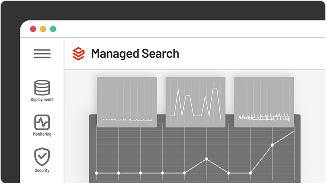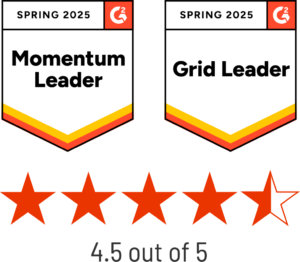[00:00:27] Jeff: Welcome to the EdTech Connect podcast, your source for exploring the cutting edge world of educational technology. I’m your host, Jeff Dillon, and I’m excited to bring you insights and inspiration from the brightest minds and innovators shaping the future of education. We’ll dive into conversations with leading experts, educators and solution providers who are transforming the learning landscape. Be sure to subscribe and leave a review on your favorite podcast platform so you don’t miss an episode. So sit back, relax and, and let’s dive in.
[00:01:11] Jeff: Today we have Sameer Maggon. He’s the CEO and founder of SearchStax, a company that empowers organizations to elevate their website search to deliver superior outcomes for their visitors. Sameer brings more than 20 years of experience in building software platforms, teams and products. And as an early adopter of cloud technology, Sameer is passionate about working closely with customers and utilizing technology to solve high value problems. Sameer’s vision extends to a proactive use of search, transforming it from a tablespace website tool to an impactful lever that both technical and non technical teams can use to curate search results and connect users with the content they need. So welcome Sameer.
[00:01:57] Sameer: Well, thank you very much, Jeff. Pleasure to be here.
[00:02:00] Jeff: Yeah, great to have you. And as the founder of SearchStax, can you tell me a little bit about your founder’s journey? What inspired you to start SearchStax?
[00:02:09] Sameer: Sure, happy to. I’ve always believed search plays a very critical role in shaping the user experience online. I’ve, you know, throughout my career I’ve started in search and I’m still in search. It’s been more than 20 years and it’s just fascinating field and you know, it’s just amazing to be in that field. But you know, one of the challenges, right, is building a scalable and effective search infrastructure is incredibly hard. You know, I noticed, you know, while in my career, large companies could afford to invest heavily in building custom search solutions. But you know, if you look at the wide variety of organizations, you know, they’re often left kind of struggling, right? We have outdated systems, they don’t have the resources to manage it, or they have built something that’s just kind of inflexible and not able to deliver the experiences. And that really kind of led me to say, you know, I want to, I want to work on something that bridges that gap, right? So I founded SearchStax really with the focus of making the technology accessible, powerful and easy to implement so that all businesses, right, regardless of their size, can deliver the best in class user experience. And you know, we, you know, from SearchStax perspective, our focus is on giving our clients the ability to deliver high quality search experience without having to have an in house team of experts to manage it.
[00:03:39] Jeff:Yeah, that’s, that makes so much sense. I’m curious, you went to USC, right? You got your master’s degree in computer science. Was there any influence in that pursuit of your degree with your decision to start the company?
[00:03:56] Sameer: Absolutely. You know, I completed my master’s program at USC in 2005. It was super instrumental, right, in shaping my understanding of software architectures, large scale systems. I actually came in and did a specialization in robotics and AI at USC and those fundamentals were very strong in building my foundations of how to deliver good scalable systems and software architectures, which is super critical for delivering a good search platform. Also, if you think about the technology and technology and architecture side is one side of the story. But you know, my background, right, like my upbringing is from India and coming to, from India to complete my master’s at USC and you kind of get thrown into a different environment, right. And you have to learn like my, my time at USC I learned how to be adaptable and I really learned how important it is to stay agile and keep iterating, right. Because it’s critical for a company that’s starting, especially at SearchStax. Those two factors are super critical to growth. And the academic foundation helps kind of make the leap from going from an idea to a product and to a service that we have today delivered to our customers.
[00:05:25] Jeff: So I have our overlap here is higher ed. I’ve been spent my career in higher ed and what I’ve noticed and have been impressed with was how quickly you’ve moved into that sector. And I’m just curious, what, what’s the difference between search for a commerce or retail site versus higher ed? What have you seen?
[00:05:47] Sameer: That’s a great question, Jeff. You know, at the fundamental level, right, the core principles of search, if you really look at it, relevance, speed and user engagement, right. I mean those are core principles of search and they apply across all industries. But you know, what happens is the priorities are different in E commerce. You know, search is often about driving conversions, purchase decisions, right. It’s designed to help customers find products they want as quickly as possible. And you see, you know, facets on the left hand side that, you know, typically people who use Amazon and other shopping carts are used to, right. Like price, brand popularity. You know, those are very common when you look at e commerce systems in higher education. However, you know, search is more about guiding users, right. Whether it’s the students, the faculty or the staff towards going to relevant information, you know, and that could be anything ranging from course descriptions to department contacts, research, you know, research resources or simply finding, you know, something that they’re looking for on campus. So education search is more exploratory, right. And often involves much more complex queries or, you know, things that people type in the search box. Right. So it requires a different approach to relevance and ranking compared to commerce. Commerce engines. And you know, we’re working with colleges and universities as you know, of course, you’re aware of. [00:07:17] Sameer: Right.
[00:07:18] Sameer: And we work with them to adapt search that meets, you know, those unique needs. Helping students, for instance, find courses or programs that fit their academic goals. And that’s, you know, that’s very important.
[00:07:31] Sameer: Right. [00:07:31] Sameer: And then on the marketing, you know, marketing teams in the universities, they want to make sure they may have a focus area, right? They may have a focus area around, you know, gender neutral, gender neutral content and they want to, you know, highlight those focus areas and help whoever’s coming to their website navigate to the right information.
[00:07:50] Sameer: Right.
[00:07:51] Sameer: So, so that’s very different from commerce and that’s, that’s how I look at the world.
[00:07:56] Jeff: That’s, that makes so much sense. I know the complexity and I know you’ve brought in some pretty big schools recently and I’m like, it makes a lot of sense to really target higher ed. The higher ed really needs this. Content discovery has kind of been exponentially more important since they have so much app proliferation and content proliferation. So I love seeing that. I am curious as to what do you think the next steps are?
[00:08:25] Jeff: How do you stay ahead of the curve when, when technology is evolving so fast? People are expecting more and more from search, especially in the higher ed landscape. Can you talk about that a little bit? [00:08:36] Sameer: Yeah, absolutely. You know, like with everything else, right. Staying ahead in search requires a commitment and a commitment to continuously learn and continuously innovate. In some sense, it’s no different than probably any other field that you really want to become a subject matter expert and really create a pioneering, become a pioneer in that field. So to me, it’s part commitment to continuous learning and innovation. What we’re doing, or at least what we do here at SearchStax, invest heavily in R and D. We keep on trying to explore emerging technologies these days, particularly around AI, machine learning and how these technologies transform the capabilities of search. So that investment in R and D is super critical. All the work we do sometimes don’t make it into the hands of the customers. We try something and sometimes we have to throw it away and sometimes we find something that actually, you know, is of high value. And then we figured out how do we deliver that at scale for our customers. And the second thing we do right is at SearchStax, we’re deeply customer focused, right? What that means is we’re constantly listening to what our clients are asking and observing how their needs change. So by aligning our product development with real world challenges, you know, we, we ensure that our platform evolves and meets the latest demands.
[00:10:11] Jeff: What I, what I think I’ve seen from coming out of SearchStax is, you know, what, what the market has right now, and I live this because I was managing a search on a campus was we had a free product, we were using Google and most schools were, and there’s that free version where people think, okay, this works fine, we have a bunch of links, somewhat relevant and no one wants to take the step to go to these tech heavy. I need to either hire professional services and go get something custom set up or have a team that does that myself. Is it fair to say that you’re kind of this tool that’s really helpful to bring agility to marketers where they can use a search tool but not have to be overwhelmed with development? Is that kind of your mission?
[00:10:53] Sameer: You know, like I said at the start, right? What I found was these institutions, right? Large organizations have those resources, have the expertise, have the investment. But most of the organizations, similar to what you’re talking about, a lot of institutions, a lot of institutions, you know, don’t have those capabilities in house, right? Or you know, don’t have the know how or are not, you know, as you’re reiterating, right, have the ability to kind of hire a bunch of professional services in order to deliver that. And we’ve made our mission to see how we can, you know, deliver the power of search without people having to become a search expert, right? Without them having to build a lot of professional services. And how do we really make it easy to bring that kind of power into the hands of, you know, business folks or marketing folks or content folks, people who are really managing the websites from a, you know, from not being kind of a deep technology, you know, technology practitioner.
[00:11:57] Jeff: Right? And it seems that being such a, I would say product led company is a little bit unique in the space and I’ve seen so much custom development that you were able to bring on so many schools so fast. It just really turned the heads of the industry as to who is this SearchStax company. You have all these big logos and all these industries and now you have dozens in higher ed in the US So it’s really, I’m really excited to see how you’re doing that. And with being product led and having really technical teams or marketers being able to configure and tune that. So back up to, let’s say your founder, 30,000 Foot Vision. We have a lot of founders on the show and it’s really. People love to hear like your perspective from that. What are some of the lessons you’ve learned about leadership and entrepreneurship as you’ve been building, building this company?
[00:12:52] Sameer: Yeah, that’s, you know what, I’ve been doing this for 10 years now. So this is the 10th year or SearchStax. I think one of the most valuable lessons I’ve learned is the importance of resilience.
[00:13:06] Sameer: Right. [00:13:07] Sameer: I mean, building a company comes with unexpected challenges and I feel resilience is what keeps you kind of keep at it.
[00:13:15] Sameer: Right.
[00:13:16] Sameer: I think a, you have to really love what you’re doing and I always tell that. But I think the other part is not giving up, right. And being focused on what you’re trying to bring to the market and not getting disheartened by failures. I think it’s super important. I think that’s one that promote leadership and entrepreneurship. One of my valuable lessons, I think the second lesson is the importance of empowering the team and figuring it out. How do we create an environment, Right. How do we create an environment where people feel ownership over their work? [00:13:58] Sameer: Right. [00:13:59] Sameer: You know, I, you know, I don’t know if you’ve heard me say that before, but I often internally.
[00:14:03] Jeff: Right. [00:14:04] Sameer: Like it’s my genuine kind of desire that can we create an environment where people can do the best work of their life?
[00:14:12] Sameer: Right. And if we can do that, I don’t think we’re, you know, I don’t think we’re there yet. But you know, we’re, we’re striving for it. But if you can do that in every discipline or every functional area of the organization, I feel that has a lot of power, right? Because if you do that, then you can create a leverage, you can create a multiplied effect where, you know it’s not just one person, right. It’s everyone rowing towards the same goal and they have the ownership to do that. And then finally, I think customer centricity is super critical. Especially I feel like in the world of technology organizations and startups in particular, I think sometimes we get too. What’s the right word I’m thinking about? Sometimes you get too distracted by the new technology that’s right around the corner. Now it’s super important to look at the technology, but I think what’s important, and a lot of companies forget that, is how is that technology? You know, how can I use that technology to solve a problem for my customer and what problem does it solve for me? And that’s been a super important lesson that, you know, listening to customer feedback, how does it help shape our roadmap and how do we use that to build strong relationship? I feel these three lessons have been, you know, from my perspective, the foundation of our success so far at Systax and help us.
[00:15:38] Jeff: You’re doing something right. Because I saw. I forget which organization it was, but someone voted you one of the best places to work in la. So I know you’re based in la, we have employees all over. So sounds like you’re well, thank you.
[00:15:51] Sameer: I wouldn’t say we’re done. So we have a lot of work to do.
[00:15:55] Jeff: So I wanted to say this one till later in the, in the podcast here, but really you’ve done a lot of research, you’ve written a lot of papers in your career. One of them was making search better by tracking, utilizing user search behavior, which is just never gets outdated, that topic. You explore these innovative search technologies. So we know what everyone’s talking about right now. And it’s AI. And a lot of people equate AI to search almost. Right. Because it’s a search box. So how do you, how do you see AI shaping the future of site search at a high level and at SearchStax for higher ed specifically too? [00:16:33] Sameer: Yeah, I mean, AI, you know, AI is not a. I mean, I wouldn’t consider AI as a something new.
[00:16:40] Sameer: Right. Like I mentioned earlier, you know, AI has been around for, for a while. I think, to be more specific, what’s new now, right. Is large language models.
[00:16:50] Sameer: Right.
[00:16:51] Sameer: These are, these are something that are fundamentally, you know, fundamentally changing the game. Fundamentally something that’s now pushing, right. Kind of the. I would say the traditional ways, how people, what people used to call AI, right. Machine learning and, you know, semantics and things like that. And now we have an advent of large language models. Like if we take a step back.
[00:17:13] Sameer: And let’s take a step back on the AI side. You know, AI has an immense potential, right. To personalize and enhance the search experience, especially in higher education, where users often have very specific needs you have for college websites, AI can help predict intent more accurately, provide relevant answers to prospective students, current students and faculty. At SearchStax, what we’re doing is we’re leveraging both machine learning as well as we leverage large language models to understand these search patterns, to understand what’s being typed into the search box. And then two things, right? How do we use that to deliver more insights and how are those insights used to improve the relevance and the speed of the results?
[00:18:04] Sameer: And that’s, you know, that’s kind of the core of it. So for example, right. AI can help universities surface the right information based on common, you know, search queries during application season, or even tailor search results based on a student profile. And this approach has been proven very valuable, right, in helping universities improve user engagement so that students can find resources, you know, that they need to succeed academically.
[00:18:30] Sameer: Right.
[00:18:31] Sameer: So that’s fairly common. And I would say our use of AI, right. And now LLMs, you know, AI is not new to us. We’ve been using, you know, both supervised and unsupervised machine learning in the past. And now, you know, we’re starting to incorporate LLMs that, you know, as you can see, we’re starting to kind of launch new capabilities into our product around those. That’s, I think that’ll really level up the field from a user experience perspective for higher education websites.
[00:19:02] Jeff: It’s, it’s coming, right? You’re kind of acknowledging that it’s, it’s coming and it’s already integrated. So what I’ve seen in higher ed specifically is higher ed is very risk averse, right. They see the shiny new object and they want it. But when it comes down to it, the stakes are pretty high to just wholesale replace the search with some sort of AI tool. So they’re not doing that. They realize I’ve talked to schools saying like we want to decide where to connect the dots. Like we can’t. There’s too much at stake here to really, you know, rely on AI for, for all of our search. Are you seeing that too? Where schools are, think they’re ready, but maybe they’re not quite know what they’re asking for with, with AI. They want AI, but they don’t want AI.
[00:19:49] Sameer: Absolutely. You know, well, you know, there’s two types of, you know, people you talk to, right. One is they want AI, but they don’t know what they want yet.
[00:19:58] Sameer: Right.
[00:19:58] Sameer: So they’re looking for us to say, what is it? That you’re bringing to the table. And I don’t want to be left out, right. I want to make sure that we don’t have a system that you know, is old.
[00:20:11] Sameer: Right.
[00:20:11] Sameer: And I don’t want to make sure that I’m not left behind or some of the things that people are doing. We want to make sure the search, search system supports that.
[00:20:19] Sameer: Right.
[00:20:20] Sameer: Now there’s the other aspect of it which is, you know, and I think going one level deeper onto the search part of it is, you know, the problem with hallucinations, right. With you know, large language models where how do you make sure if you are incorporating AI, how do you make sure the quality.
[00:20:36] Sameer: Right.
[00:20:37] Sameer: And the brand and the trust factor is put in, you know, in a little bit of a constraint.
[00:20:44] Sameer: Right.
[00:20:44] Sameer: And how do you make sure that quality, quality is delivered without affecting the brand? No one wants to, no one wants to look bad. Especially you know, higher education websites where the trust is so important.
[00:20:56] Sameer: Right. [00:20:56] Sameer: The brand is so important. You don’t want someone coming and searching for something and Even there’s a 1% chance to getting a wrong answer. That’s, that’s kind of loses credibility. And you don’t want universities to lose credibility.
[00:21:12] Jeff: Yeah, you, you touched on this earlier about we don’t know our users intent and I think that’s part of the problem or almost the ideal scenario for an enhanced site search out a university campus. Because higher ed wants to personalize so bad. They’ve wanted to for decades and they’ve tried to for decades and you know, trying from wholesale replacements with CDPs and things like that, it’s really hard. Number one is because it’s so complex. Number two, there’s not enough money. I mean it goes on and on and then we’re being compared to these other experiences. So here’s an example I want to throw throughout you and see what you think. How close are we to. I searched for something like how much does tuition cost? And what I think people don’t know what people don’t want to ask sometimes. So right. That’s a. How much does tuition cost at X school or at, you know, in general? Because we have, we have scholarship information that’s important that they may have never thought of. There’s financial aid, there’s application deadlines, not just a list of tuition costs. How close are we to having that sort of experience to where like it knows, you know, AI can really deliver a really robust set of results.
[00:22:29] Sameer: I don’t think we’re there yet. Yeah, I think there’s some work to be done. But I think also there is an aspect of does the search engine, you know, sometimes the search engine is as good as the data, right? I think the other part is, does the search engine have that data to be able to give that answer?
[00:22:50] Sameer: Right.
[00:22:51] Sameer: And in most. I think the question I would ask is, you know, when you go to a university’s, you know, website or any kind of source, right. Is that information available? Is the first question right? On either on their website or some form, does the search engine have access to that information? I think if it has access to the information. I believe the technology now that we have is getting to a point where it can maybe not give you an exact answer, but it can give you a set of relevant, set of relevant kind of options, right. With hopefully better, you know, better references, right. That you can kind of go into the deeper, you know, go into deep, right?
[00:23:35] Sameer: With.
[00:23:35] Sameer: So that’s kind of where I see today. But part of it is also at least my experience working with universities is sometimes a lot of times that data accessibility is a problem. You don’t have access to that data because that data is sitting somewhere inside a complex hidden database that you can’t have access to. From a search engine perspective, I’ve heard.
[00:23:57] Jeff: That perspective said different, different ways. And I, I think what I’m coming to the conclusion is that universities will say, where do I start? And I say, start up by cleaning up your data. Like no matter what you do, you have to clean up your data. Is that kind of what you’re thinking too?
[00:24:12] Sameer: Data cleansing is hard. I think, you know, that’s a very hard problem to attain. I think people, people are imperfect. And I feel having a vision that we’re going to have clean data, I think it’s a, it’s a wishful thinking, unrealistic. I feel it’s a wishful thinking, right? I mean, that’s, that’s hard. I feel that’s how search was. Like, think about it, right? The, what search did, right, was there’s so much amount of information, I think search power is to say, how can I filter that information? And how can, how can I, how can I get the best, you know, answer or how can I get the best information out of all that data? [00:24:57] Jeff: Yeah, yeah.
[00:24:58] Sameer: I think data cleansing, while noble, you know, kind of idea, I believe it’s hard.
[00:25:05] Jeff: Yeah.
[00:25:06] Sameer: And it’s really hard.
[00:25:08] Jeff: And even the, another, I wouldn’t even call it data cleansing, but here’s an example I’ve run into in higher ed is people are conducting a search. And what’s coming up is some sort of old news story in some archives because the Office of Public affairs or Communications has to have it up there for archival purposes, but they haven’t deprioritized it. And it seems like what it boils down to is you need a search tool that can, you can tune that, you can take care of these things. Like we don’t want these archives to go away, but if it’s in an archive folder, it probably should be deprioritized.
[00:25:41] Sameer: Is that that search engine has the powers to do that.
[00:25:44] Sameer: Right.
[00:25:44] Sameer: And you know, you’ll see SearchStax. Right. Has controls now that allow the business users or the content users to really have, you know, utilize their knowledge.
[00:25:56] Sameer: Their knowledge about the systems, their knowledge about the domain and where this, you know, where the machine makes a mistake, they have an ability to kind of override.
[00:26:06] Sameer: Those decisions and use their human intelligence, what I call to kind of inform.
[00:26:11] Sameer: And make the results better for the end user.
[00:26:14] Jeff: Well, I love what you’re doing, Sameer, and I would love to follow SearchStax and we’ll see, we’ll see where we’re at in a year. But I’m going to close it out and just ask you if there’s anything else you want to tell the audience or, you know, where would a university start if they want to really enhance their search?
[00:26:35] Sameer: We’re happy to have a conversation. If they want to really think about how you want to start, I would say, you know, we’re happy, you know, we have what, about 50 actually plus universities now across the globes. 50 universities using SearchStax. We have over 750 customers across the globe. And I think we always love to have conversations around how we can improve because, you know, these challenges are fascinating for us. So that’s kind of what I would say. And yeah, thank you. Thank you for having me, Jeff. [00:27:05] Jeff: All right, thanks, Sameer. Bye bye.
[00:27:07] Sameer: Yeah, Absolutely.
[00:27:13] Jeff: We wrap up this episode. Remember, EdTech Connect is your trusted companion on your journey to enhance education through technology. Whether you’re looking to spark student engagement, refine edtech implementation strategies, or stay ahead of the curve in emerging technologies, EdTech Connect brings you the insights you need. Be sure to subscribe on your favorite podcast platform so you never miss an inspiring and informative episode. And while you’re there, please leave us a review. Your feedback fuels us to keep bringing you valuable content. For even more resources and connections, head over to edtechconnect.com your hub for edtech reviews, trends and solutions. Until next time. Thanks for tuning in.





